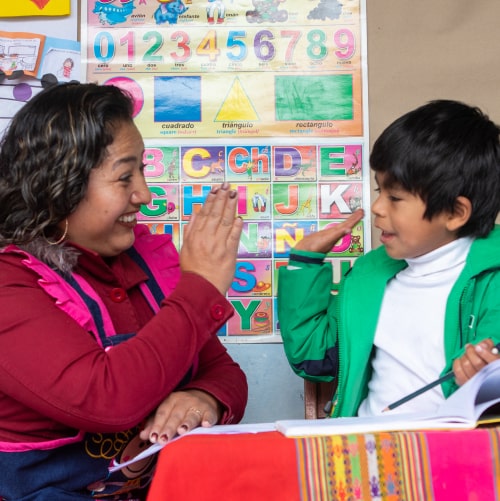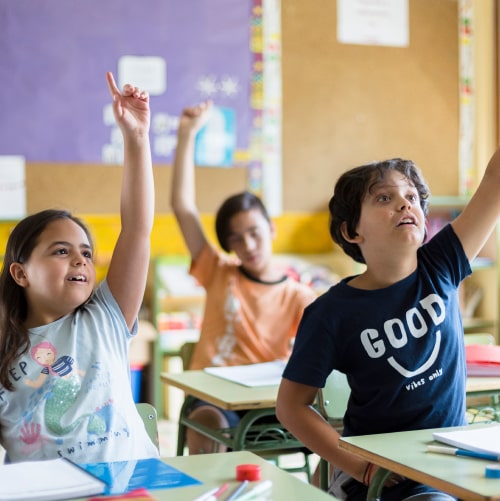Paying attention to the emotional development of teachers is fundamental, especially if we take into account that it is just as important as the management of pedagogical processes.
It is essential that, as teachers, we be aware of the importance of seeking our own well-being and establishing healthy connections with ourselves and others. Only then will we be able to provide support, accompany and inspire our students in the development of socioemotional skills, such as self-awareness, self-regulation, social awareness, relational skills and responsible decision-making.
Moreover, the ties that are established in the educational community have great potential to contribute to the personal development and professional performance of its members, offering support in times of crisis and challenges.
It is necessary to implement periodic moments for encounters and collective listening in order to promote emotional development among teachers.

That way, the teaching staff will be able to cultivate socioemotional skills and nurture their ties. As for the issues that can be addressed in these moments, the reality is that they are multiple. For example:
- Socialize: A reason for gratitude, so that the group members connect emotionally with each other.
- Socialize and recognize: A personal achievement.
- Socialize and recognize: A challenge overcome.
- An ongoing challenge in the socioemotional support for students.
- A question about a topic related to self-care.
How to start the dialog?
In relation to how to start the dialogue, Pilar Sanz, Educational Psychologist, advises that, before starting the teaching encounter session, agreements be established that allow generating a safe space, as well as optimizing time.
How to structure each session?

After the above, it is advisable to form subgroups of 3 or 4 teachers. That way the session could unfold in two parts. In the first, one of the members of the subgroup will start sharing, while the others will listen carefully.
Subsequently, one of the teachers could raise a situation related to the topic defined, based on his/her own experience. As in the shared situation, the different emotions that it generates must be expressed, and the main lessons that the situation leaves must be pointed out.
In the second part, a time is allowed for exchanging around the situation previously raised, where the colleagues of the subgroup speak out. This is an opportunity to ask questions that allow us to understand in greater depth, aside from offering reflections or ideas from one’s own experience that contribute to the situation of the person who shared initially.
After the first round, the turn of the second person begins. Both are completed and the actions are repeated until all those in the subgroup have shared.
By following this advice to strengthen the emotional development, you will be able to improve your skills to identify and name your emotions, understand their origin, express them and value the perspectives of the rest. Also, you will be able to make responsible decisions when choosing what to share and how to share it. Find more information like this, together with other resources from our Educational Quality Program on our website, visit us!









